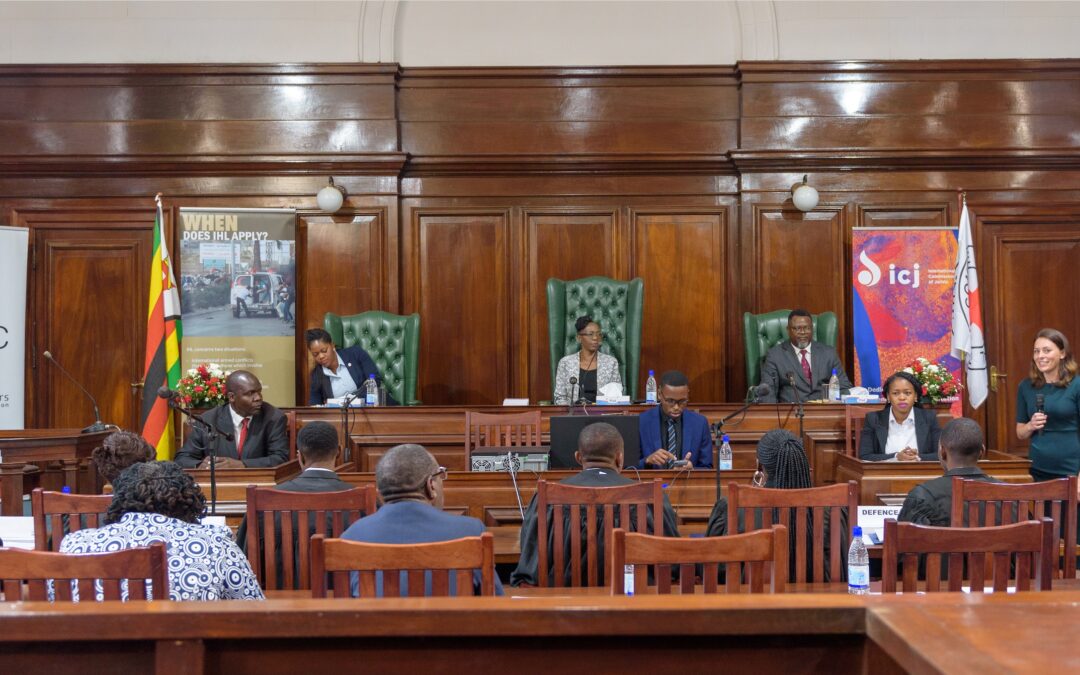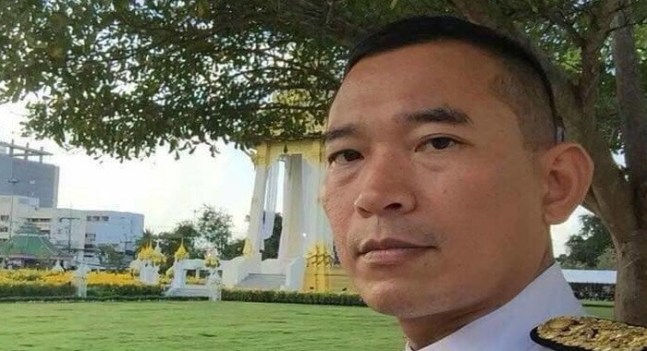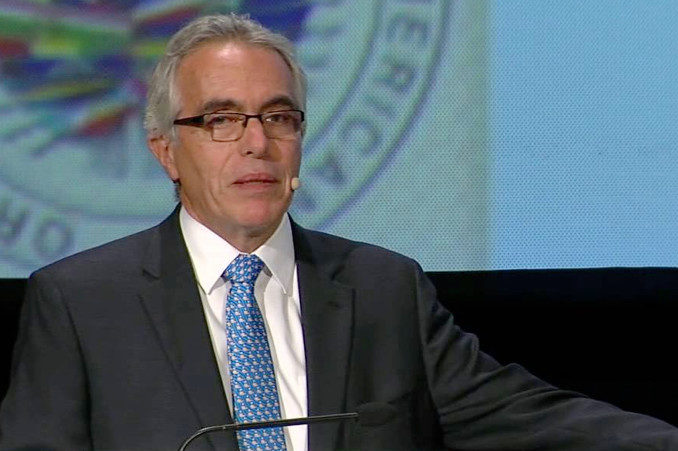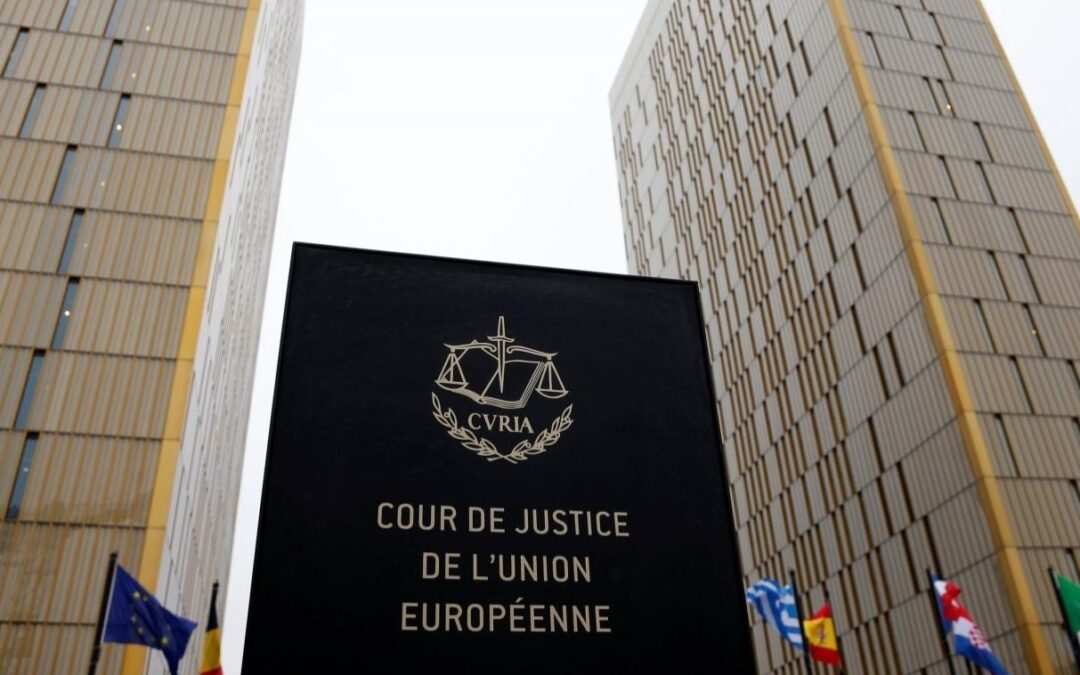
Oct 11, 2019 | News
The ICJ in partnership with the International Committee of the Red Cross (ICRC) convened the 2019 International Humanitarian Law (IHL) moot court competition.
The IHL moot court competition brought together 12 law students from Great Zimbabwe University, Midlands State University, University of Zimbabwe and Zimbabwe Ezekiel Guti University; to engage with IHL issues.
The Great Zimbabwe University students won the competition and will participate in the All Africa Moot Court Competitions to be held in Arusha, Tanzania representing Zimbabwe.
Moot Court competitions are a part of the philosophy of developing a conscientious lawyer and contributing to law graduates who have an affinity for defending human rights and the rule of law. IHL incorporates human rights principles in times of war. As a result, understanding IHL allows students to have an understanding of the application and limitations of human rights during times of war. The moot court competitions additionally equip the students with an invaluable opportunity to develop key advocacy skills.
“The moot competition gives law students the opportunity to have experiential learning and can be one among an array of interventions that could be done to supplement the university education of lawyers in Zimbabwe that has not been very strong on human rights and humanitarian law,” said Arnold Tsunga, Director of ICJ’s Africa Regional Programme.
The competition was held from 8 October to 11 October 2019. On 8 October the law students underwent an advocacy boot camp which was a full training day on advocacy skills. The four law faculties participated in a preliminary round on 9 October. The top two, Great Zimbabwe University and Midlands State University qualified for the final round. The winning team, Great Zimbabwe University will participate in the All Africa Moot Court Competitions which brings together IHL national champions from all over Africa.
The competition was supported by the European Union.
Contact
Arnold Tsunga, t: +26377728 3248; e: arnold.tsunga(a)icj.org
Rumbidzai Muyendesi, t: +263771666579; e: rumbidzai.muyendesi(a)icj.org

Oct 7, 2019 | News
The apparent suicide attempt of a judge in southern Thailand highlights the need for urgent reform of the judiciary to improve its independence from political interference, the ICJ said today.
Judge Khanakorn Pianchana, Vice Presiding Judge of the Yala Provincial Court in Thailand’s restive southern region, reportedly shot himself in the chest following his delivery of a verdict on 4 October in a case in which he alleged political interference in his judicial functions. Judge Khanakorn is currently hospitalized in critical condition.
“This unfortunate incident again shows the need for sustained reforms of law enforcement and particularly of the independence of the judiciary in Thailand,” said Frederick Rawski, ICJ’s Asia director.
Judge Khanakorn had alleged in a 25-page note that he was ordered in confidence to rewrite his ruling exonerating five suspects of murder charges – a decision he had allegedly reached on the basis of lack of sufficient evidence. The five have had been detained and interrogated under special security laws in force in the Southern Border Provinces of Thailand.
Under Thai law, if a superior judicial officer disagrees with a ruling of any judge, he or she must express such disagreement in writing and is forbidden from speaking to a judge in confidence to reverse the ruling.
“The ICJ has worked for years with the judiciary in southern Thailand to improve the administration of justice, especially by addressing problems such as the improper admission of evidence and problematic evidence-gathering by security forces countering armed groups,” Rawski said. “This case again shows how misuse of emergency decrees in southern Thailand has aggravated the political pressure exerted on judges.”
Today, the case was submitted to the Office of the Judicial Commission for its consideration. The Commission, chaired by the President of the Supreme Court, comprises of qualified members who are judicial officers of each level of the Court. Consequently, the Commission passed a resolution to set up a Sub-Committee comprises three of its members to investigate into the allegations.
Particularly because Judge Khanakorn’s claim involves several senior judges in active services, the Sub-Committee set up by the Commission to investigate the allegations must therefore be independent institutionally and functionally, at all stages of the investigation. Their mandate should be broadened to look into whether there is wider pattern and practice of interference beyond this case.
Background
Judge Khanakorn presided over a trial involving the alleged murder of five people in Yala province in 2018. Following the killing, authorities arrested five suspects who were charged with murder, secret association, conspiracy and gun-related offences. If convicted, three out of five defendants could be sentenced to death.
The five suspects were reportedly detained and interrogated under much-criticized special security laws which remain in force in the Southern Border Provinces of Thailand – i.e Martial Law and Emergency Decree. The ICJ has repeatedly criticized how the Martial Law confers upon military authorities the powers to arrest and detain any person without a warrant for up to seven days for interrogation and questioning and does not require detainees to be brought before a court at any stage of their detention. The ICJ has also repeatedly analyzed and criticized the Emergency Decree, which breaches international law and standards, by allowing authorities to detain suspects, with the leave of the Court, for up to 30 days. The law does not require a detainee to be physically brought before the Court during this period.
Information submitted to the court as evidence in this case had reportedly been obtained from the suspects during detention periods prescribed under Martial Law and the Emergency Decree. Judge Khanakorn noted in his statement that he was of the view that any information obtained during this period should not be admissible because rights protections had not been afforded to the suspects who had been detained under security laws, as they are provided to suspects in other criminal trials. This position had reportedly led to the disagreements between the judge and his supervisor over the case ruling.
The ICJ has repeatedly expressed concern on the use as evidence of information obtained during interrogation under emergency laws in criminal proceedings of security-related cases, in the form of witness statements or inquiry reports from interrogation officials. The ICJ has called on Thailand to review existing standards in all special security laws and relevant articles in the Criminal Procedure Code regarding the admissibility of evidence that are not compatible with international fair trial standards.
Judge Khanakorn also described in his statement that certain evidence needed to have been ruled inadmissible as it had not been collected by competent authorities but by volunteers who were not competent or specialized in evidence collection.
Judge Khanakorn further asserted that interference in his judicial functions had also occurred in 2018 when he had been under pressure to reduce the sentence of three military officers who had been found to have shot villagers to death.
The right to a fair hearing in judicial proceedings before an independent and impartial court or tribunal is guaranteed in several human rights instruments, including the International Covenant on Civil and Political Rights (ICCPR), which Thailand is a party. The right is also enshrined in section 188 of the 2017 Constitution of Thailand.
International standards also reaffirm that judicial independence requires not only the independence of the judiciary as an institution from the other branches of government; it also requires judges being independent from each other. Such freedom from undue influence that might come from other judges is guaranteed in several internationally accepted standards, including Principle 1.4 of the Bangalore Principles of Judicial Conduct and its Commentary; article 3 of the Universal Charter of the Judge; and article 2 of the Basic Principles on the Independence of the Judiciary.
Further reading:
International principles on the independence and accountability of judges, lawyers and prosecutors – Practitioners’ guide, no. 1
Thailand: ICJ co-hosts lawyers’ meeting on admissibility of evidence in the national security context
Thailand : legal memorandum – hearsay evidence and international fair trial standards
Thailand : implementation of Thailand´s emergency decree
Contact:
Frederick Rawski, ICJ Asia-Pacific Director, t: +66 64 478 1121; e: frederick.rawski(a)icj.org
Download:
Thailand-Suicide of Judge-News-2019-THA (Thai version, in PDF)

Sep 20, 2019 | News
The ICJ welcomes this week’s visit to Uzbekistan of the UN Special Rapporteur on the independence of judges and lawyers, Diego García-Sayan, during which he will assess reforms of the judicial system, the independence of the judiciary and the independence and role of lawyers.
“The visit of the Special Rapporteur to Uzbekistan, at the invitation of the government, is an indication that the Uzbekistan authorities are serious about the ongoing reforms of the justice system. This visit is only a starting point for the deep reforms needed to establish an independent and fair justice system in Uzbekistan. Realising these reforms will require sustained commitment of all institutions of government, lawyers and civil society,” said Temur Shakirov, Senior Legal Adviser of the ICJ Europe and Central Asia Programme.
The ICJ, along with other NGOs and IGOs, met with the Special Rapporteur in Tashkent yesterday on the first day of his visit, and drew his attention to issues concerning the independence of judges and lawyers in Uzbekistan.
“The visit will be followed by the report of the Special Rapporteur containing findings and recommendations. These recommendations should be effectively implemented and the ICJ is committed to provide expert and other support in the Uzbekistan’s effort to bring its justice system in line with the recommendations,” Shakirov added.
Background
The visit of the UN Special Rapporteur on independence of judges and lawyers takes place from September 19-25, 2019.
The Special Rapporteur will hold meetings with representatives of the government, judiciary, prosecutors, lawyers and civil society and is expected to issue a report analyzing the independence of judges and lawyers in Uzbekistan, following his visit.
The Special Rapporteur on the independence of judges and lawyers is one of the special procedures of the United Nations Human Rights Council, appointed as an independent expert to monitor the compliance of UN Member States with international standards on the independence of judges and lawyers.

Aug 5, 2019 | News
The ICJ today raised concerns that the proposed Zambian Constitutional Amendment Bill 2019 may negatively impact the independence of the judiciary in Zambia.
The proposed amendments to provisions regarding disciplinary measures and processes against judges and the composition of the Supreme Court and Constitutional Court are particularly concerning, according to a statement by a group of organisations including the ICJ.
“The ICJ implores the President of Zambia and the Zambian legislature to ensure the alignment of all constitutional amendments with international human rights standards on the independence of the judiciary, the rule of law and the separation of powers,” said Arnold Tsunga, the ICJ’s Africa Director.
The joint statement calls upon the President of Zambia and the Zambian legislature to ensure that the proposed constitutional changes are in line with international human rights standards.
According to such standards, individual judges ‘may be dismissed only on serious grounds of misconduct or incompetence, in accordance with fair procedures ensuring objectivity and impartiality set out in the constitution or the law’. Examples include ‘incapacity or behaviour that renders them unfit to discharge their duties’ and ‘physical or mental incapacity that prevents them from undertaking their judicial duties.’
Moreover, disciplinary proceedings regarding judicial officers must be held by an institution independent of the executive and the legislature to secure the independence of the judiciary.
Article 143 (a) of the Zambia Constitution currently provides that ‘a judge shall be removed from office on the following grounds: (a) a mental or physical disability that makes the judge incapable of performing judicial functions; (b) incompetence; (c) gross misconduct; or (d) bankruptcy.’
However, the Amendment Bill worryingly replaces subsection (a) and allows for removal when a judicial officer is ‘legally disqualified from performing judicial functions.’
Furthermore, the proposed amendment does not set out the circumstances or infractions that could lead to the ‘legal disqualification’ leaving the provision open to abuse and in violation of the principle of legal certainty and the rule of law.
“The amendment introduces unnecessary obscurity and vagueness to the Constitution, which, in turn, increases the risk of judges being removed on politically motivated grounds and threatens the rule of law,” Tsunga added.
Another worrying aspect of the proposed amendment is the suggested changes to Article 144 of the Constitution transferring the authority to determine whether judicial officers are removed from the Judicial Complaints Commission to a Tribunal Appointed by the President.
The amendment allows for the possibility of a Tribunal staffed by members of the executive and the legislature, further heightening concerns about threats to judicial independence.
“It is vital that the processes and procedures for the removal of judicial officers in Zambia are constrained in terms of tightly defined constitutional provisions, overseen by independent decision makers without improper influence by the executive and the legislature,” said Tsunga.
The full statement is available here.
The statement is signed by:
Commonwealth Lawyers Association (CLA)
Commonwealth Magistrates’ and Judges’ Association (CMJA)
International Bar Association’s Human Rights Institute (IBAHRI)
International Commission of Jurists (ICJ)
Judges for Judges (J4J)
Lawyers’ Rights Watch Canada (LRWC)
Southern Africa Litigation Centre (SALC)

Jun 25, 2019 | News
The ICJ welcomes yesterday’s judgment of the Court of Justice of the EU (CJEU) which ruled that forcing the retirement of Polish Supreme Court judges by lowering their mandatory retirement age, violated EU law.
Following the judgement, the security of tenure of these judges must now be permanently ensured, the ICJ said.
“The independence of the judiciary in Poland has been systematically undermined by the Polish executive and legislative authorities in recent years. This is a landmark decision that should herald a return to the rule of law in Poland, including legal, institutional and practical protection for judicial independence,” said Róisín Pillay, Europe and Central Asia Programme Director at the ICJ.
“This decision should be fully complied with. But it should also prompt the Polish authorities to reverse the wider damage that has been done to the rule of law, to restore the independence of the institutions of the judiciary, and end the harassment of judges through unjustified disciplinary proceedings,” she added.
In its decision issued on 24 June, the CJEU found that the lowering of the retirement age for judges, without transitional arrangements for those already in office, was not justified by any legitimate objective and therefore undermined the principle of irremovability of judges, which is central to judicial independence. It therefore violated the principle of effective judicial protection in Article 19(1) of the Treaty of European Union.
The Court also considered the discretionary power of the President to allow a judge to remain in office following the mandatory retirement date.
It found that, although this power was based on the opinion of the National Council of the Judiciary, such opinions were in practice given without any reasons, and therefore did not provide an effective safeguard.
The Court found that the President’s discretionary power gave rise to reasonable doubts that judges could be subject to external influence, in violation of the principle of effective judicial protection under Article 19(1) TEU.
Background
A law on the Supreme Court, which entered into effect in July 2018, attempted to force the “retirement” of 27 of the 72 Supreme Court judges, including the First President, by lowering the mandatory retirement age for its judges from 70 to 65 years.
The ICJ has repeatedly condemned the “forced retirement” of the 27 Supreme Court Justices as violating the security of tenure of judges in direct contravention of the principle of judicial independence, as expressed in international law and standards.
These include the UN Basic Principles on the Independence of the Judiciary, Council of Europe standards, the European Court of Human Rights’ jurisprudence and the rule of law principles enshrined in article 2 of the Treaty on European Union.
An ICJ letter of 11 July 2018, signed by 22 senior judges from all regions of the world, urged the Polish government to act immediately to reinstate the forcibly retired judges in office.
Proceedings against Poland under Article 258 TFEU were launched by the European Commission in October 2018, alleging infringement of Article 19(1) TEU (the principle of effective judicial protection) together with Article 47 of the EU Charter of Fundamental Rights (the right to a fair hearing and an effective remedy).
Following an interim decision of the CJEU in December 2018, the judges who were forcibly retired were reinstated in office, under a Law on the Supreme Court that came into force in January 2019.









